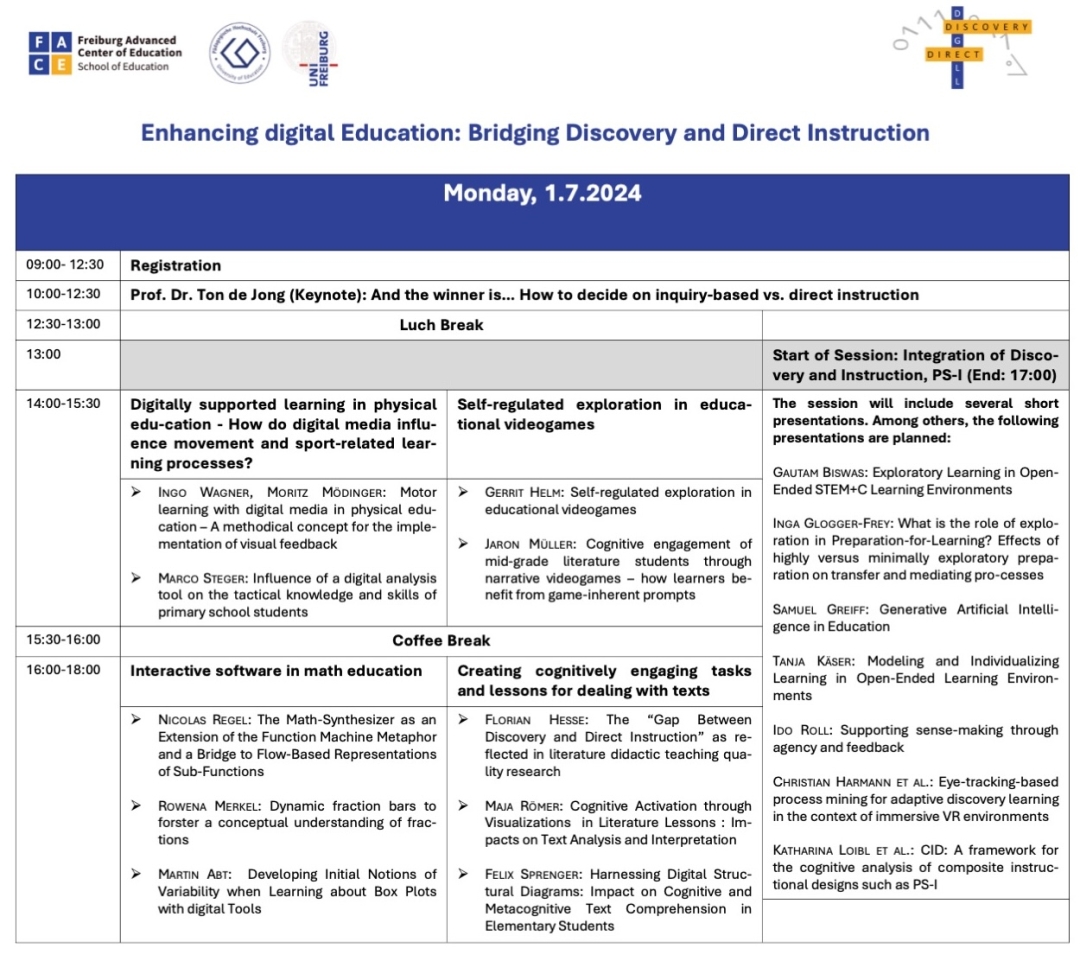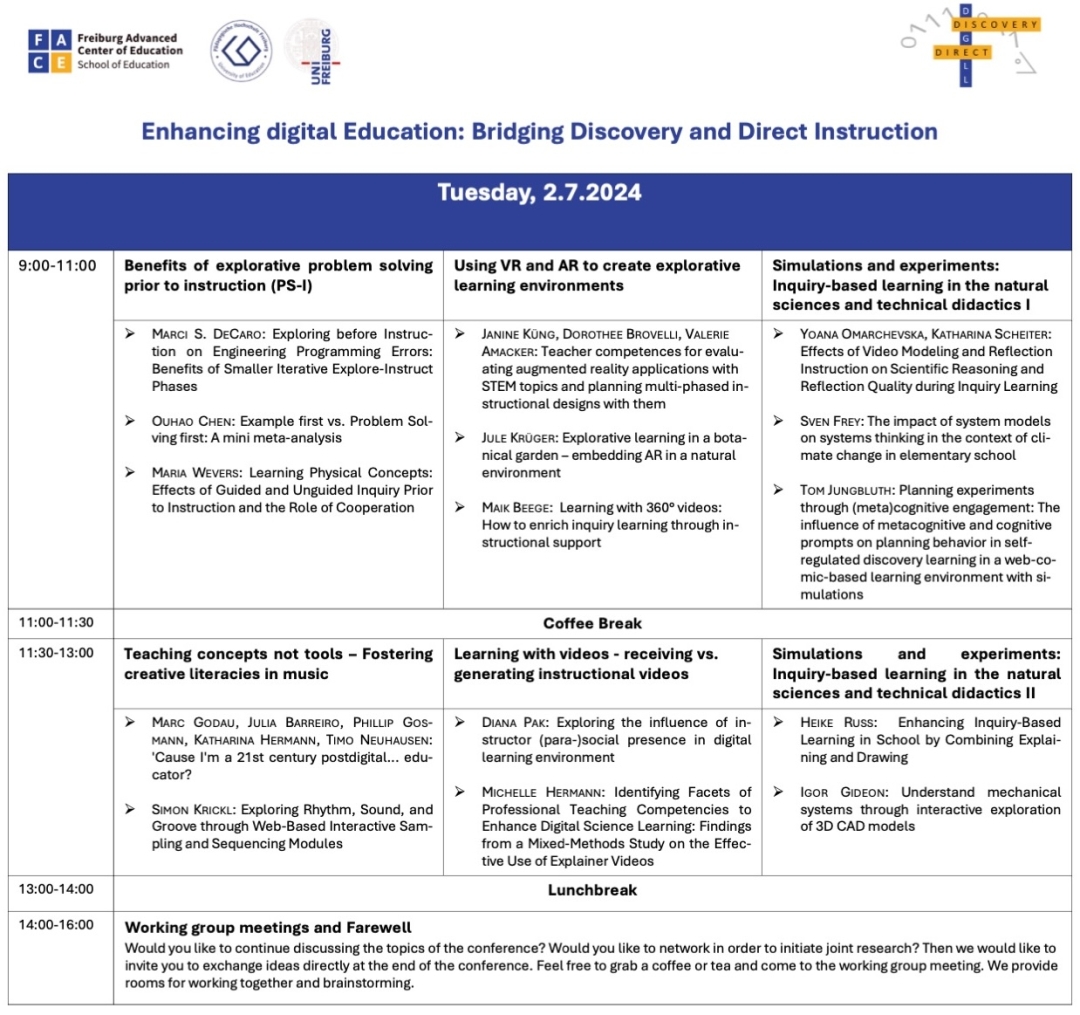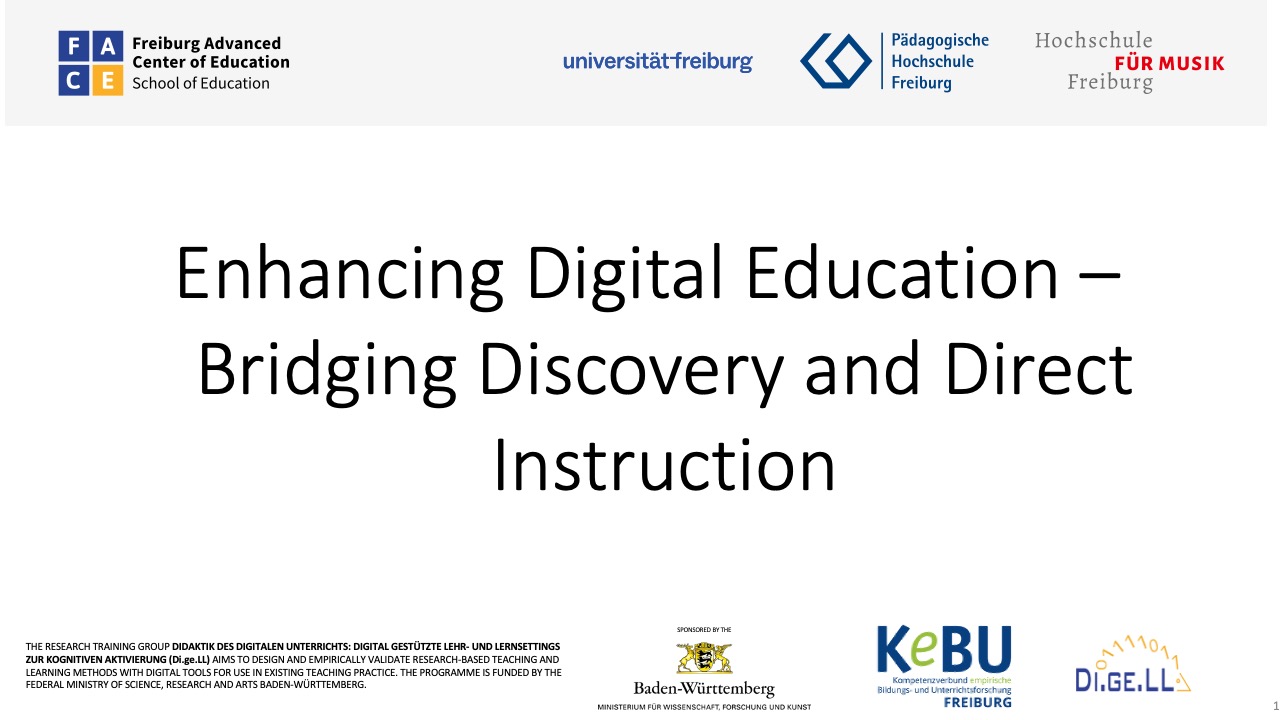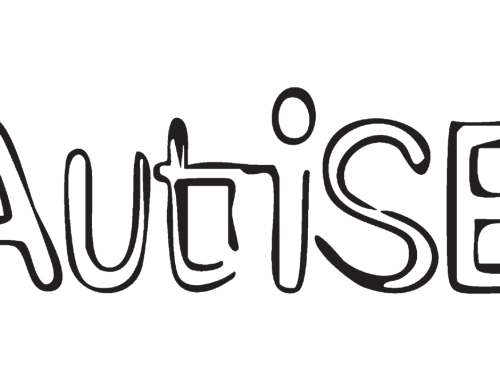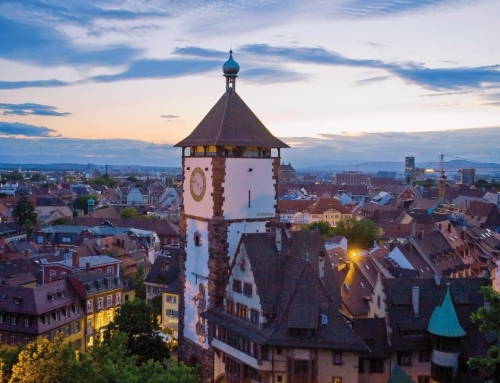Dear participants of the conference “Enhancing Digital Education: Bridging Discovery and Direct Instruction”,
we are very pleased to welcome you on July 1st and 2nd in Freiburg. We hope you come with interest to discuss direct instructions and discovery learning together with us. Are both concepts fundamentally different, or can bridges be built between them? Let’s find out together.
If you have any further questions, please do not hesitate to contact us at: digell-tagung@ph-freiburg.de
Best regards,
The organizing team
Schedule
